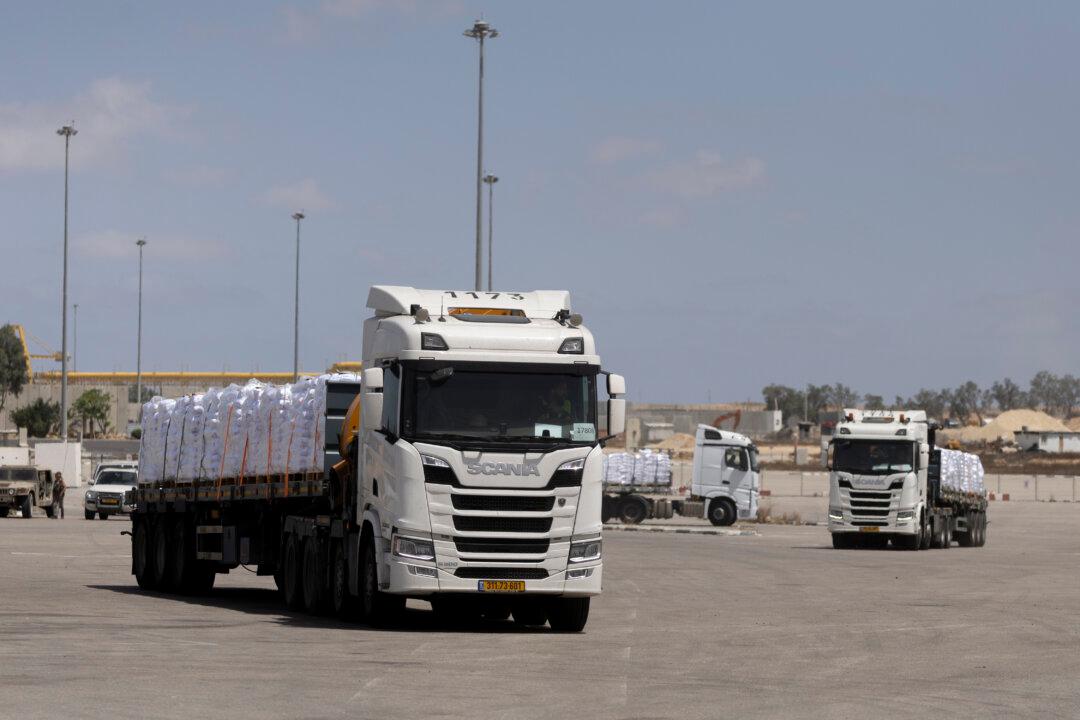Three men have been arrested over an alleged Russian plot in 2024 to send exploding parcels by air from Germany to Ukraine.
In July 2024, several parcels blew up at depots in Birmingham, England, the German city of Leipzig, and the Polish capital, Warsaw.
In October, the German authorities said they were investigating incendiary devices hidden inside parcels that had caught fire at a warehouse in Leipzig in July.
Russia denied any involvement. “We know nothing about it. We do not rule out that this is just more fake news or a manifestation of blind Russophobia,” Kremlin spokesman Dmitry Peskov said.
German Justice Minister Stefanie Hubig, in a statement after the May 14 arrests, said: “We know that Russia is trying to destabilise Western democracies by all means, including targeted sabotage and perfidious intelligence methods.
“Our security authorities ... are keeping a close eye on this threat.”
At the time of the incidents, the head of Germany’s BfV intelligence agency, Thomas Haldenwang, told a parliamentary committee that when one air freight parcel caught fire, it almost caused a plane crash over Germany.
On May 14, Germany’s federal prosecutor general gave details of arrests that had taken place in the few days prior.
Vladyslav T. was arrested on May 9 in Cologne, and Daniil B. was arrested on May 10 in Konstanz, in southern Germany.
Both were brought before a court on May 11, following the execution of arrest warrants from an investigating judge of the Federal Court of Justice.
Details of their arrests remained secret until Yevhen B. was detained in the Swiss canton of Thurgau on May 13 following a request by the German authorities.
“The accused are strongly suspected of acting as agents for the purposes of sabotage,” Germany’s federal prosecutor general said.
“In this context, they are also accused of having declared their willingness to commit aggravated arson and to cause an explosion.
“To this end, the accused were to work together to send packages containing explosive or incendiary devices from Germany to recipients in Ukraine, which would ignite during transport.”
The prosecution alleged that Vladyslav T. had sent two test packages with GPS trackers at the behest of Yevhen B. with the goal of scouting “suitable transport routes.”
“Yevhen B. also provided the package contents via Daniil B.,” the prosecution stated.
Yevhen B. is expected to be extradited from Switzerland and to face trial with his alleged accomplices.
Intelligence officials have repeatedly warned of a growing threat from hybrid attacks in the wake of Russia’s invasion of Ukraine in 2022.
In a speech in October 2024, the head of Britain’s MI5 domestic intelligence agency, Ken McCallum, said: “While the Russian military grinds away on the battlefield, at horrendous human cost, we’re also seeing Putin’s henchmen seeking to strike elsewhere, in the misguided hope of weakening Western resolve.”
McCallum said the UK “has taken robust action to constrain Russian aggression.”
“Earlier this year, the last remaining Russian military intelligence officer was expelled from the UK, and diplomatic accreditation removed from a number of sites,” he said.
In April 2024, Dylan Earl, 20, and several other people were charged in Britain with conspiring to commit espionage activities on behalf of Russia.
Earl pleaded guilty in October in connection with an arson attack at an industrial unit in east London, connected with Ukrainian-linked businesses owned by Oddisey and Meest UK.
His five co-defendants, who deny the charges, are due to go on trial in London in June.






